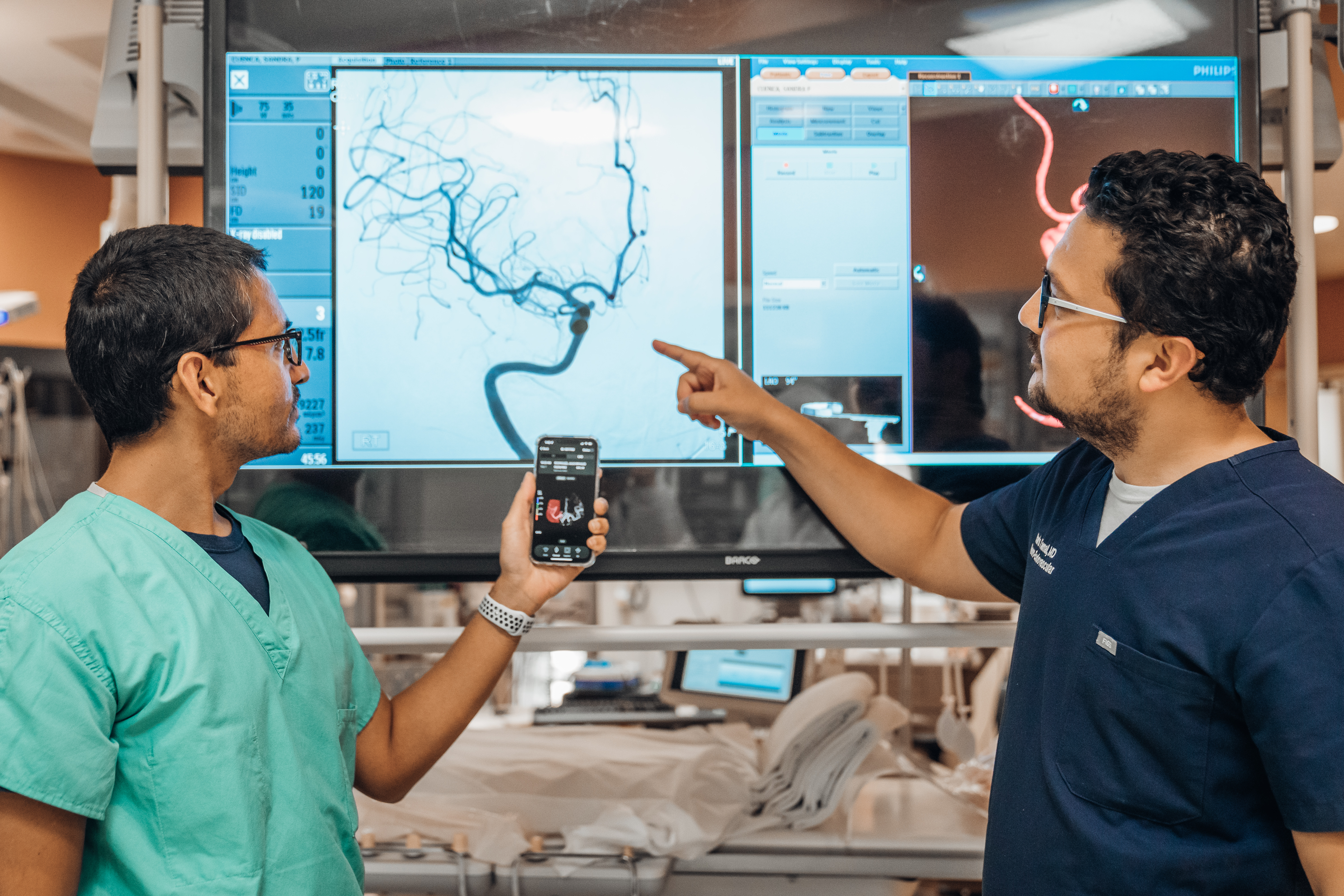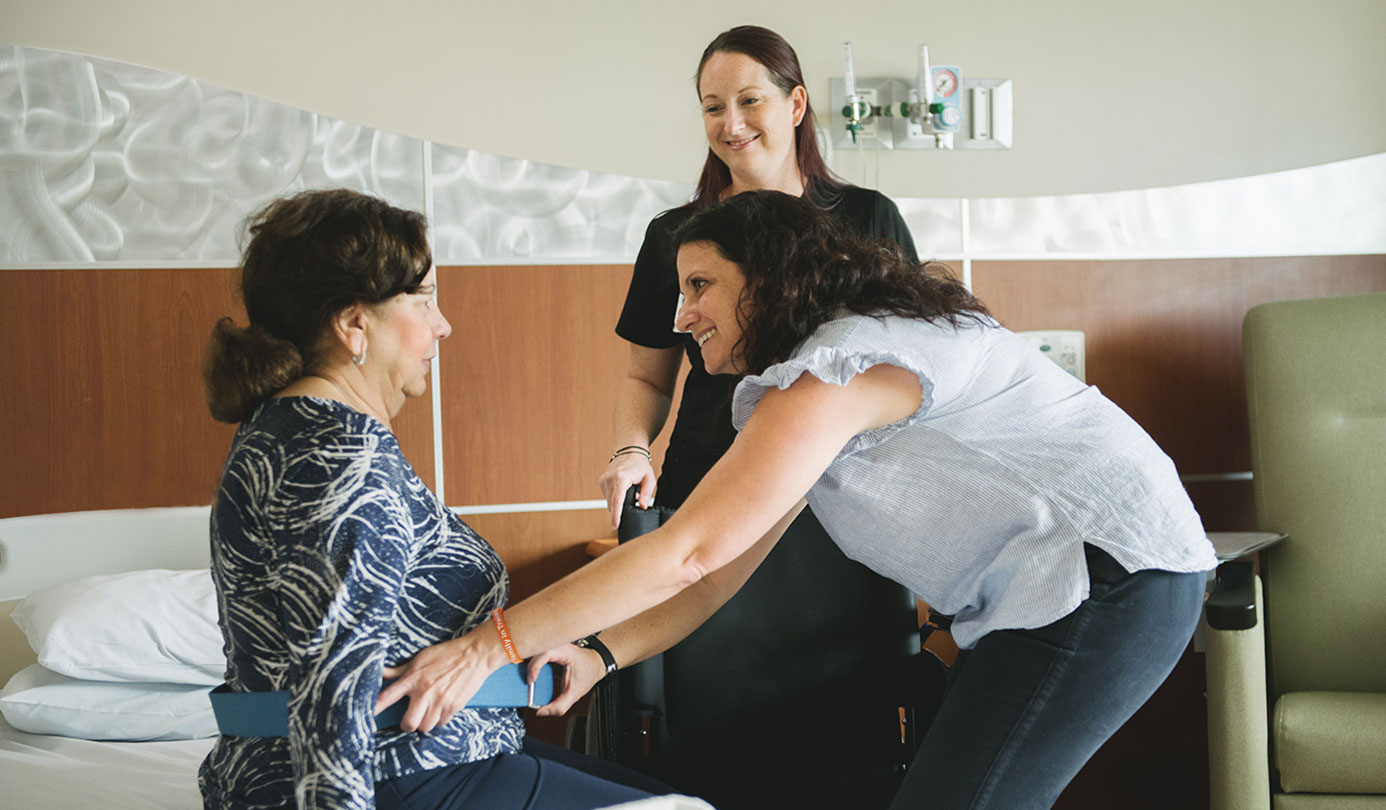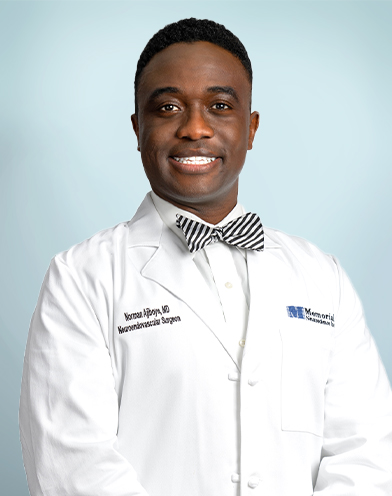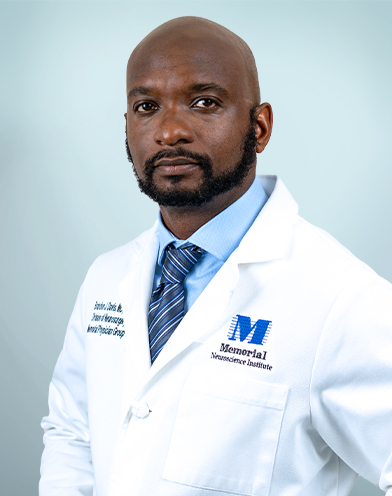
Neurointerventional Surgery
We treat AVMs, brain aneurysms, skull base tumors, and subarachnoid hemorrhages using minimally invasive surgery.
Explore Our Interventional Neuroradiology Services
Call us today to schedule a new appointment or follow-up visit
954-276-3500Interventional neuroradiology, also called neurointerventional surgery, neurointerventional radiology, interventional neuroradiology, or endovascular neurosurgery, is a highly specialized field of neurosurgery. The treatment involves tiny incisions and small tools to perform brain surgery.
This approach is less invasive and promotes a faster recovery. Our neurointerventional surgeons participate in the latest research so we can bring patients the newest, most innovative treatments.
From initial diagnosis through recovery, we offer the full range of neurology services with an emphasis on patient- and family-centered care.
Interventional Neuroradiology: Why Choose Memorial Healthcare System?
At our facilities you will find:
Data shows that patients treated by a team of multiple specialists have better outcomes. Our vascular interventional neurologist team meets regularly to collaborate and discuss each of our patients and their treatment plans.
When you undergo neurosurgery or interventional neuroradiology with Memorial Healthcare System, you won’t need to go anywhere else for rehabilitation or follow-up care. We offer the full spectrum of neurology services, including neurorehabilitation and a dedicated neurocritical care unit.
Our neurointerventional surgery team participates in a high volume of clinical trials. Being involved in these studies, we are often among the first to implement the newest technologies and treatments. This research gives us a level of academic expertise not usually found in community health systems.
Any condition affecting your brain can be worrisome. From the moment you step foot in one of our facilities, we give you and your family a clear point-of-contact. This designated person is available to support you and your family throughout your treatment and recovery.
We also offer same-day appointments for new diagnoses of brain tumors, aneurysms and AVMs.
Our neurointerventional surgery team works closely with our on-site pediatric neurosurgeons to treat AVMs or aneurysms in children. Many health systems do not have these services available under one roof.
Learn more about our pediatric neurosurgery services.
Call us today to schedule a new appointment or follow-up visit
954-276-3500Interventional Neuroradiology Brain Surgery Team
The interventional neuroradiology team at Memorial Healthcare System has more than 20 years of experience treating patients in South Florida. Our team includes highly trained medical professionals in:
- Neurosurgery: These specialists treat injuries or diseases of the brain, spine or related nerves.
- Neurology: Neurologists are highly trained in treating conditions that affect the brain.
- Neuropsychology: These specialists provide support for the potential intellectual or emotional impact of a brain condition or injury.
- Neurocritical care: Patients can recover in our neurocritical care unit after surgery to reduce risk of stroke.
- Neurorehabilitation: These specialists help patients regain function and independence after a brain injury or surgery.
- Neuroradiology: Neuroradiologists use advanced imaging techniques to evaluate conditions of the brain, spine, neck, ears, nose or throat.
- Cerebrovascular surgery: These surgeons offer specialized treatment to repair blood vessels.
Frequently Asked Questions
In this type of brain surgery, neurointerventional surgeons operate through tiny incisions no larger than the size of a coin. Surgeons use these small openings to insert catheters (flexible, hollow tubes), needles or surgical tools to access brain arteries.
Minimally invasive neurosurgery enables surgeons to see the brain even more clearly than traditional “open” surgery. They insert high-tech cameras that transmit clear images of the brain onto a large screen. These images guide the surgeon’s movements, so they can operate even more precisely. Patients experience less pain and tend to have a faster recovery using this surgical approach.
Neurointerventional surgery uses minimally invasive surgery (MIS) techniques to treat many conditions, including:
- Brain tumors: These are abnormal growths in the brain that can be noncancerous or cancerous.
- Skull base tumors: These growths occur at the base of the skull or behind the eyes and put pressure on the brain.
- Aneurysms: Brain aneurysms are bulges in the blood vessels of the brain.
- AVMs: An arteriovenous malformation (AVM) is a cluster of abnormal blood vessels.
- Subarachnoid hemorrhages: A subarachnoid hemorrhage occurs when there is bleeding in the space between the brain and the tissues that cover the brain.
Some of our neurointerventional surgery treatments include:
- Awake craniotomy: This surgery uses a process where the patient stays awake during the operation.
- Pituitary surgery: We offer a noninvasive procedure that uses a small surgical microscope to perform surgery through the nose.
- Stroke care: Because our stroke centers are certified through The Joint Commission, we can use minimally invasive techniques to treat subarachnoid hemorrhages, brain aneurysms or AVMs.
Call us today to schedule a new appointment or follow-up visit
954-276-3500




It matters to you. It matters to us.
Quality and Safety Data for Memorial Healthcare System's Neuroscience Institute
Our goal is to provide our patients with the information they need to make informed choices for themselves and their families.
View Quality and SafetyYou have a right to know about pricing
We want to give you the information you need to make important healthcare decisions.
View PricingMyChart Portal
View test results, schedule follow-up appointments, request prescription refills and more.
Login or Sign-up to MyChart
Patient and Family Centered Care
We treat patients and family members as partners in healthcare.






